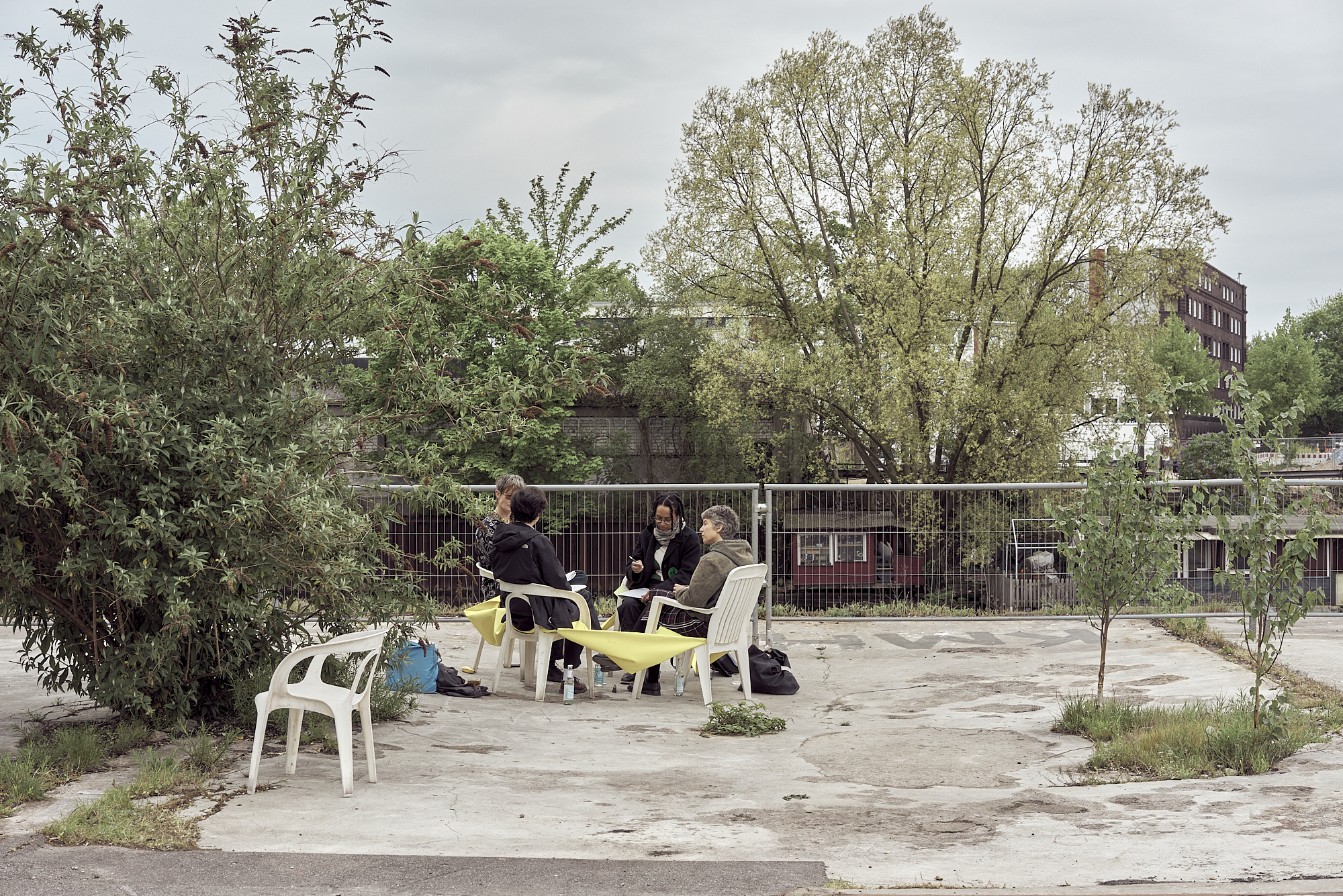How do we share uncertainty?
The urban is a multitude in constant becoming: it consists of a myriad of actors, species, systems, ecologies, infrastructures, histories etc. And that myriad constructs the urban in continuous processes of negotiation, revision, iteration, and so many other forms of transformation. Working with the urban can never aim at finished cities, buildings, objects, but rather at starting a conversation with and within this multitude of constant becoming.
Ever since I started my education, studying architecture and urban design, then working in the field of cooperative planning and urban practice, I have been interested in methods, sceneries and actors that best make this multitude, in constant becoming, conversable.
A few years ago, I started working within a project for cooperative urban development, where civil society initiatives, public administration, state-owned companies and political representatives agreed upon working together towards a common-good oriented city. My position was a paid support structure for the organized civil society. I was thrilled by this project, testing new modes of shared governance, ownership and responsibility between civil society actors and the state. Although all partners had agreed upon shared goals and governmental structures, cooperation proved to be challenging. After roughly two years I had to leave the job due to an unnerving feeling of being incredibly stuck, overworked and visionless.
Last year, I started a research project with Felix Marlow and Ignacio Farías on two cooperative, common-good oriented urban development projects in Berlin, one of them being my former working environment1 . One of our hypotheses states that long-term collaboration enables generative controversy. The notion of controversy leans on Callon, Lascoumes and Barthe (2011), who write about acting in an uncertain world, and how to understand controversy as a mode of shared uncertainty and communal learning. They write about cooperation in complex situations, discussing how, with the growing complexity of a matter of concern, it is increasingly difficult to make decisions based on comprehensive risk assessment. The actors of this situation thus need to make decisions, always accepting a remaining level of uncertainty. Through the research project and from my own experience I can attest that uncertainty is a constant companion in cooperative, common-good oriented planning processes. Although this uncertainty is a shared experience, the stakeholders are very seldom articulating their uncertainty freely. On the contrary: in most cases, entrenched positions are held against each other instead of articulating one’s own uncertainty as an opportunity for shared learning. Often, the idea of cooperation over time turns into a battle for entitlement, leaving the actors feeling stuck and exhausted.
In the Hologram I would love to discuss the idea that enabling shared uncertainty as an indispensable mode of cooperation would allow for more sustainable processes, and ask how to design scenographies (Cantarella et al. 2020) that allow conversations about unavoidable uncertainty on how to design a city for the common good.
Bibliography:
-Callon, Michel, Pierre Lascoumes, und Yannick Barthe. Acting in an Uncertain World: An Essay on Technical Democracy. Inside Technology. Cambridge, Mass: MIT Press, 2009.
-Cantarella, Luke, Christine Hegel, und George E. Marcus. Ethnography by Design: Scenographic Experiments in Fieldwork. First issued in paperback. London New York: Routledge Taylor & Francis Group, 2020.
- Stadtentwicklung durch Public-Civic-Partnerships: Zusammenarbeit, Kontroversen, Modellierungen. 2022 – 2023 an der Humboldt-Universität zu Berlin. https://www2.hu-berlin.de/pcpmodellprojekte/ ↩
